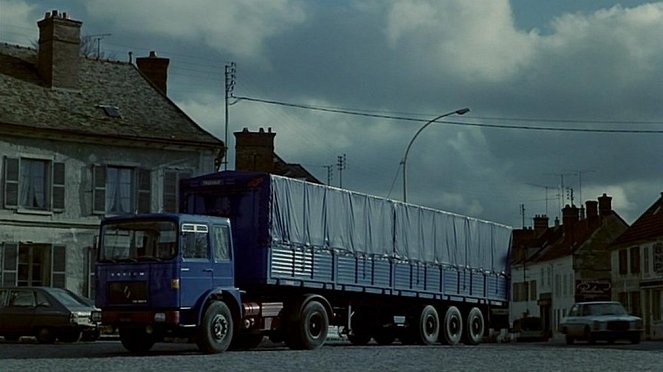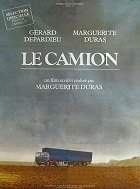Juonikuvaukset(1)
Short sentences avoid description. Marguerite Duras reads aloud and Gérard Depardieu is her truck driver. Shots of the two protagonists sitting at a table alternate with shots of the truck cab, where no one is sitting. Occasionally we see a passing landscape. As time passes and it slowly gets darker, Duras and Depardieu begin casually talking about cigarettes… The Truck is a brilliant piece of cinema on how to work intuitively with time, length, pause, text, voice and music. The Truck is often described as a portrait film, here a metaphor for a road that doesn't stumble. (Ji.hlava International Documentary Film Festival)
(lisää)Arvostelut (1)
"In the chain of representation, there is white space: in general, we learn about the text, play with it, and represent it. Here we read it. It is uncertainty that concerns the equation of The Truck. I don't know what happened, I did it instinctively, I feel that the representation was eliminated. The Truck is simply a representation of reading as such. And then there is the truck itself, a uniform element, constantly identical to itself, passing through the screen as if it were a musical staff." (Interview with M. Duras in Le Monde, 1977) We must not fall into two boundary traps that could destroy this film for us: we must not imagine that there is something before the text that the text says (this film "has nothing to say") nor must we imagine that the text is here to provide us with material for a superstructure, which is a graspable representation. The white space is always in the middle of the chain – everything graspable in the chain of things in front of the camera, behind the camera, before editing, and on the screen is composed thereof: the musical staff is pure white before and after each note, only it is definitive - only it is truly graspable. Only the thing is graspable, not the person. That is the message of both the film and its politics, a message strongly influenced by its time and the state of the French left since the late 1970s.
()
Kuvagalleria (3)
Kuva © Les Films Molière

